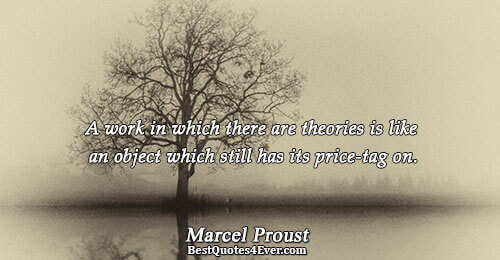BiographyType: Novelist, essayist, critic Born: 10 July 1871 Died: 18 November 1922 (aged 51) French novelist, best known for his 3000 page masterpiece "À la recherche du temps perdu" (Remembrance of Things Past or In Search of Lost Time), a pseudo-autobiographical novel told mostly in a stream-of-consciousness style. |

We don't receive wisdom we must discover it for ourselves.

We don't receive wisdom; we must discover it for ourselves after a journey that no one can take for us or spare us.

A work in which there are theories is like an object which still has its price-tag on.

Reading is that fruitful miracle of a communication in the midst of solitude.
That our words are, as a general rule, filled by the people to whom we address them with a meaning which those people desire from their own substance, a meaning widely different from that which we had put into the same words when we uttered them, is a fact which is perpetually demonstrated in daily life.

My destination is no longer a place, rather a new way of seeing.

Let us be grateful to the people who make us happy; they are the charming gardeners who make our souls blossom.